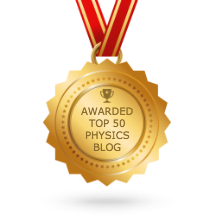Where can you find trusted information about public health? Ordinarily, I would say from the National Institutes of Health (NIH), the Centers for Disease Control and Prevention (CDC), or the Food and Drug Administration (FDA). I hope these critical institutions remain reliable authorities, but with the recent election results I think it’s wise to seek other independent sources. Today I focus on two that I find useful.
 |
| A screenshot of yourlocalepidemiologist.substack.com |
 |
| A screenshot of www.immunologic.org |
These two science communicators gain their credibility because they read, understand, and can explain the scientific literature. Their views usually reflect the scientific and medical consensus. Another way to learn about that consensus is from various scientific and medical professional organizations.
Jetelina and Love both try to reach readers and listeners who may have legitimate questions and concerns about public health controversies. I admire this, and since the election I keep telling myself to be like Katelyn and Andrea; don’t be consumed by frustration and fury, and don’t attack those who disagree with you. But then I compose something like this blog post and I find myself writing with anger and hate. I guess I need both their newsletters to keep me from boiling over, and to serve as examples of how to discuss complex topics rationally.
I follow both Jetelina and Love on Twitter (I refuse to call it “X”). But during the presidential campaign I found Twitter to be a cesspool. I’ve been staying off social media since election day (except, of course, to publish my weekly blog post on Facebook). I’m thinking about deleting my Twitter account, but I’ll probably return to Facebook eventually. I haven’t yet gathered the courage to watch the evening news. I just can’t stomach it. I’m self-medicating by reading P. G. Wodehouse stories, and I’m trying to address my anger management issues. It isn’t easy.
I worked at the National Institutes of Health for seven years. It’s a wonderful institution, which I have tremendous respect for. It pains me to even hint that they might not be the most trustworthy source of health information available. But as I look to the future, I just don’t know. Let’s hope for the best and prepare for the worst by subscribing to Jetelina’s and Love’s newsletters. And in these difficult times I can offer you one bit of good news: both newsletters are free!
For those who want a little more physics mixed in with your public health (and who doesn’t?), I recommend my blog (hobbieroth.blogspot.com) associated with my textbook Intermediate Physics for Medicine and Biology, and my book Are Electromagnetic Fields Making Me Ill? (the answer to the title question is no!). I will do my best to give you the truth, but with the storm clouds I see on the horizon I can’t promise I’ll always give it to you cheerfully. I do promise to delete the profanity before I publish any posts.
A conversation with Dr. Katelyn Jetelina about her journey in the field of epidemiology.
https://www.youtube.com/watch?v=N0UbomAFYTQ
Questioning the wellness industry with Dr. Andrea Love.




After a fascinating newsletter article about "Aluminum vaccine adjuvants are not causing food allergies", Andrea Love wrote this (which is so true):
ReplyDelete"These claims from RFK Jr. and his acolytes are not just wrong, they cause serious harm.
Health and science disinformation undermines objective truth, erodes critical thinking, scare people about critical health interventions that save lives, and they legitimize the proliferation of unchecked lies.
It is not something to be proud of to brag about rejecting expertise or factual information. Yet this era of celebrity over expertise, podcast content over critically analyzed data, anti-intellectualism over education is truly dangerous. We all have an obligation to stand up for reality, because this impacts all of us."